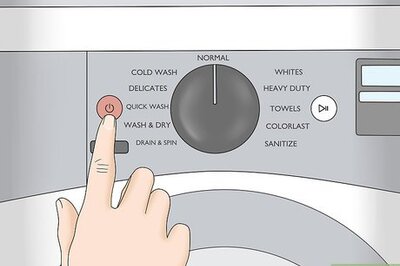
views
New Delhi: In this day and age, no criminal whose name has even the smallest recall value is ?touched? in custody during interrogation.
The police and the CBI use varied techniques to get the accused to answer their questions.
Sleep deprivation
A favourite interrogation method is deprivation of sleep.
Interrogators often feed their prey with the choicest of food in the afternoon, give them whatever they desire and ensure that they eat their fill.
They then make them sit upright on a chair, not allowing them to sleep, which inevitably follows. This slowly lowers mental resistance.
At a critical stage, the suspect is confronted with facts and asked to explain, deny or accept.
In fact hardened criminals now eat frugally during their interrogation period to avoid this.
Multiple drills
Police use a simple but very effective technique of repeating a particular sequential question several times over in a day and in a relentless fashion.
This is a psychological ploy. If a suspect is lying, he will make a conscious effort to hide the fact.
PAGE_BREAK
However if the same question is asked repeatedly throughout the day, the suspect?s guard would tend to lower and they might say something they were trying to avoid all along.
This is one of the reasons interrogations are often carried out by several teams.
Most individual teams who interrogate a suspect ask exactly the same question, ensuring the suspect gets irritated and lowers his guard.
Lying
Interrogators are the best liars. They cook up instances (which is pure guesswork) and confront the accused with it.
Often, the accused believes what the interrogator is saying and spill the beans.
The suspect is then made to physically verify what he has stated and the ?inconsistencies? recorded in the interrogation report.
This becomes the basis of the case files produced in court.
Using the criminal?s family
Police are often known to bring in a suspect's relatives, family and close friends in order to pressurise the suspect.
The suspect usually decides to tell all, knowing that police could well harass his close associates.




















Comments
0 comment